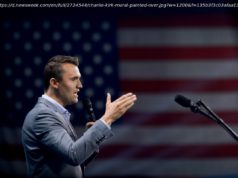He was once the subject of mockery in French political circles — now it seems Emmanuel Macron could have the last laugh in the presidential elections.
The independent centrist who has never held elected office, has become the Fifth Repubic’s youngest ever president after defeating far-right candidate Marine Le Pen on Sunday.
The 39-year-old former investment banker, who entered the race without the backing of an established political party, had been branded by his opponents as inexperienced.
But part of Macron’s allure is his atypical rise — a civil servant who became a millionaire and eventually a government minister.
Marriage a focus
His private life has attracted attention, too.
As a 17-year-old, he told his high school teacher that he would one day marry her. He fulfilled that promise in 2007 when Brigitte Trogneux, 24 years his senior, became his wife.
French journalist Anne Fulda reveals more details about their relationship in her recent book, «Emmanuel Macron: A Perfect Young Man.»
According to Reuters, the book tells how the teenage Macron defied his father’s orders to end the romance with Trogneux, who was married with three children at the time.
Since 2015, the previously very private couple have been spending more time with the media, appearing in several French glossy magazines.
The marriage took center-stage earlier this year when Macron was accused of having an affair with a man. He dismissed the allegations and criticized the rumormongers, saying: «For those who want to spread the rumor that I am deceitful… not only is it unpleasant for Brigitte, but I promise that from morning until night, she shares my whole life with me. She’s wondering how I could physically do it.»
From minister to candidate
Born in the northern French city of Amiens where he went to school and first met Trogneux, Macron studied at Paris’s prestigious Lycée Henry IV before entering the Ecole National d’Administration, long a training ground for France’s political elite.
Appointed to President Francois Hollande’s staff in 2012 after a successful career in the banking sector, Macron moved into the role of economy minister two years later, replacing the more left-wing Arnaud Montebourg.
But his time in office was not without controversy. His determination to push through business-friendly, liberal reforms made him unpopular on the government’s own benches.
With a backbench rebellion and government defeat looming, the so-called «Macron Law, » which aimed to shake up the economy through labor reform, had to be forced through the National Assembly with the help of a controversial parliamentary measure.
It led to several days of protest, but also to Macron’s realization that it was not just the economy that needed to change, but the system itself.
Announcing his resignation in August, he explained that he had «touched with his own finger, the limits of the system, » before catapulting himself into the presidential race by launching his own party, En Marche
What he’s pledged
Macron’s election manifesto promises to reform France’s welfare and pensions systems .
He has been vocal about the fight against terror and law and order, announcing proposals to increase defense spending, hire 10,000 more police officers and create a task force that would work around the clock to fight ISIS.
Macron’s policies had been aimed at wooing conservative voters, but he has also unveiled proposals to please the left too, such as his call for better pay for teachers working in poor, socially diverse areas.
He is staunchly pro-European and has promised to put France back at the heart of the EU and defend the bloc’s single market.
He has also struck a diplomatic tone seeking constructive dialogue with US President Donald Trump, while expressing interest in working with Russia, Iran, Turkey and Saudi Arabia towards lasting political solutions in Syria and elsewhere.
And he’s managed to pull in support from across the political spectrum in France.
In March, former Socialist Prime Minister Manuel Valls announced he would be voting for Macron rather than his own party’s candidate, and since the results of the first round were announced, defeated Socialist candidate Benoit Hamon and Republicans Francois Fillon and Alain Juppe pledged their support and asked their voters to do the same.
Crucially, Macron managed to attract a number of first-time voters of all ages.
En Marche!, which was only created in September, now has more than 200,000 members and his meetings have attracted vast crowds.
With his strong support base boosted by Republicans and Socialists, Macron was propelled into the Élysée Palace.
The campaign may be over, but the real work is only just beginning. As Macron himself said: «A new page of our history, » has been turned.






